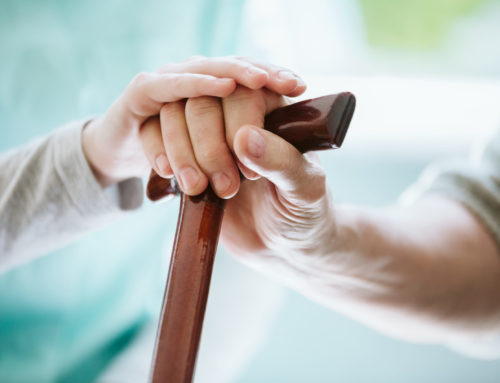When your loved one is diagnosed with Alzheimer’s disease or when you start observing the symptoms associated with it, it can be very challenging on many levels, emotionally, physically and also from the standpoint of understanding the details correctly. What follows are several caregiving tips for understanding and dealing with Alzheimer’s Disease.
What are Signs and Symptoms of Alzheimer’s Disease?
Although each individual is unique, experts have identified common warning signs of Alzheimer’s disease, including:
- Memory loss, especially of recent events, names, places and other new information
- Confusion about time and place
- Struggling to complete familiar tasks such as brushing one’s teeth
- Trouble finding appropriate words, for example in a sentence
- Difficulties in judging situations
- Changes in mood and personality
What Kinds of Challenges Should You Expect?
For the family members, the main challenge is that the person in front of you looks exactly the same as they have always been. This tricks your brain into thinking that inside the physical body, we assume the same level of intelligence and cognition. Unfortunately that is not true. The person inside has diminished capacity.
We have come across several families where I would hear the adult children having arguments and heated conversations with their parents who are suffering from Alzheimer’s. Typical conversation would look like this “Mom, we already talked about this several times. Even last week you agreed that you would turn the gas off after you finish using it…”. As you can imagine, this conversation is not going anywhere. The mom in this conversation does not have the ability to recall previous conversations or agreements.
Why A Different Approach Is Necessary
Let’s look at this differently. Look at your mom or dad, as the case may be, and imagine there is a much younger person inside their older, physical body. It is like a second childhood. Now you are the parent and your mom or dad is now your child. To help you with this, we have some wonderful training videos on our website.
It really calls for a change of mindset. Here are some key tips that will help you:
- The physical person you see visually is different from the person inside.
- Inside is a much smaller person like a child.
- They will make mistakes like a child.
- They will forget their words and their conversations.
- They will forget their surroundings.
- They will not have the answers you expect; they may even cry like a child.
- You are now the caregiver or the parent of the person in front of you.
- You are the adult in the room, not the person in front of you.
- You are the decision maker.
Don’t Do It Alone. Seek Help.
Remember, you can only care for your loved one if you are doing well, physically and emotionally.
- Join support groups
- Choose a group wisely. Support groups for adult child are different from support groups for spouses
- https://www.alz.org/events/event_search?etid=2&cid=0
- https://www.alzheimersla.org/alzheimers-los-angeles-services/support-group-directory/
- Consider some respite care options. Even if you do not want to bring in caregiving services, remember, the respite care is for you, so that you can recharge your batteries.
- At New Wave Home Care, we offer respite care services.
- Choose a home care agency to provide care.
- We normally recommend this as the cognitive condition advances and the client cannot be alone at home by themselves.
- If they are living with you, this would be a 24/7 job for you. This is where the presence of a home care agency can be a blessing.
- At New Wave Home Care, we are specialized in caring for people with Alzheimer’s. Please call us at 888-385-9898 and ask for Sam.
- Consider an assisted living facility which has a memory care option.
- Choose this option wisely. Often times, when a person changes environments, they may find it difficult to adjust and reorient themselves in a new place. This has the potential to affect their health and they may start to decline rapidly.



